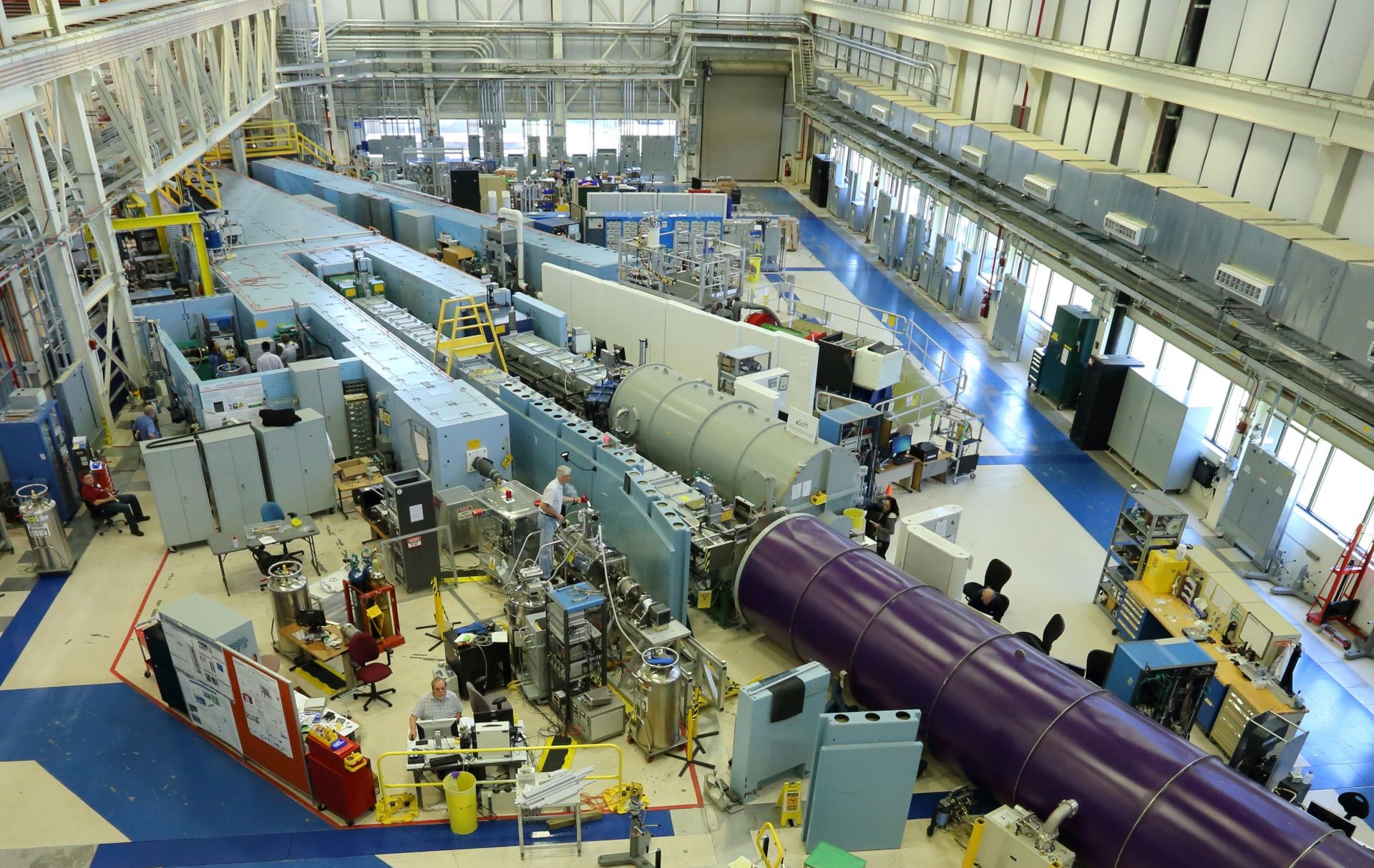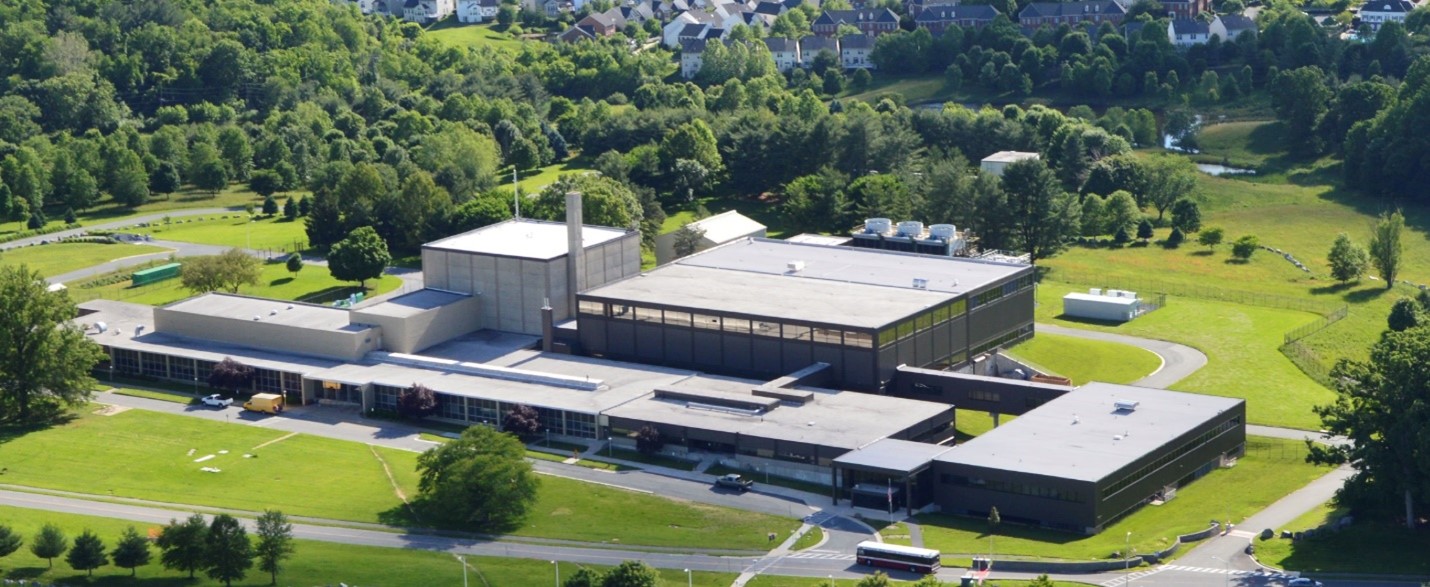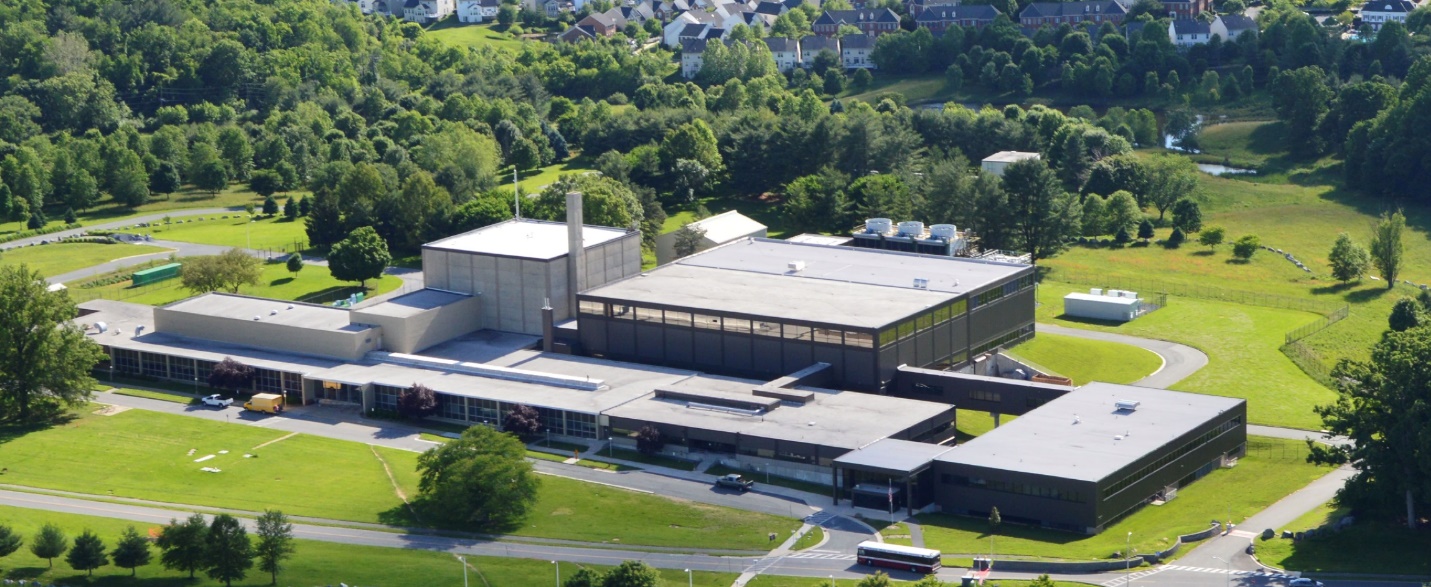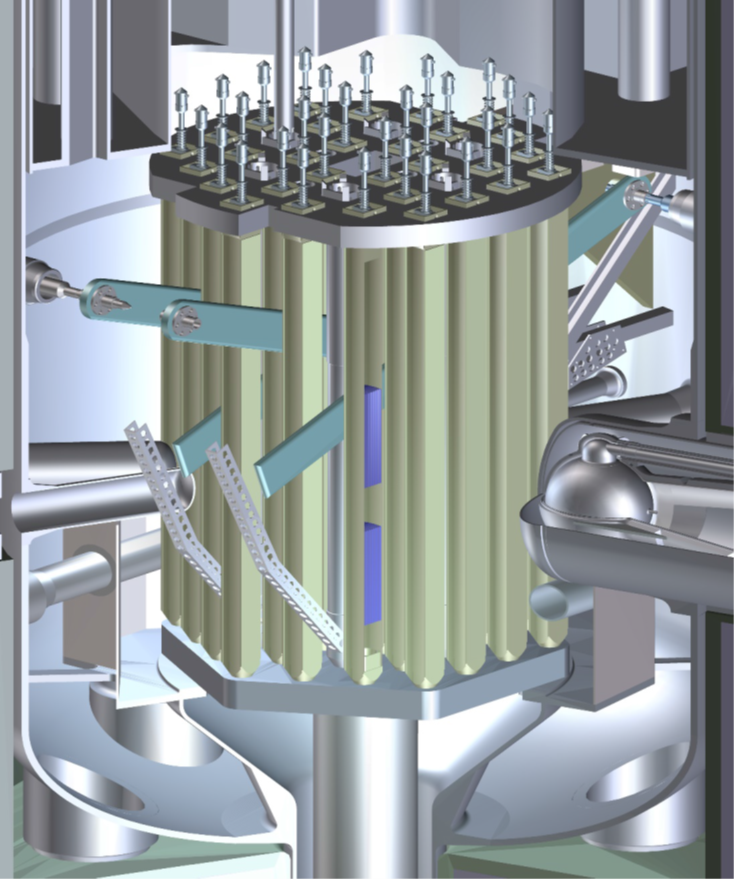A view of the NCNR guide hall, featuring the 30-meter Small Angle Neutron Scattering instrument. (Photo: NIST)
Following the February 2021 radiation release at the National Institute of Standards and Technology (NIST) resulting from a fuel failure in the 20-MWt NIST Center for Neutron Research (NCNR) research reactor, NIST investigated the root cause of the incident and developed corrective actions. The Nuclear Regulatory Commission’s probe of the incident found apparent violations and resulted in a confirmatory order issued in August 2022.
NIST's Center for Neutron Research in suburban Gaithersburg, Md. (Photo: NIST)
The Nuclear Regulatory Commission announced on August 2 that it had issued a confirmatory order to the National Institute of Standards and Technology (NIST) for violating NRC requirements during a February 2021 fuel failure at the 20-MWt NIST Center for Neutron Research (NCNR) research reactor in Gaithersburg, Md. NIST committed to improving its training for fuel handing procedures and related management activities, safety culture program, reactor facility operations staff and management, corrective action program and operational procedures, and emergency response resources and procedures, among other things.
The NIST Center for Neutron Research in Gaithersburg, Md. (Photo: NIST)
In the 13 months since a fuel element failure triggered a scram of the research reactor at the National Institute of Standards and Technology’s NIST Center for Neutron Research (NCNR), the event and its causes have been scrutinized by both NIST and the Nuclear Regulatory Commission.
Initial conclusions from an NRC special inspection released on March 16 confirm that while public health and safety was maintained during and after the event, and doses to reactor facility staff were well below regulatory limits, a safety limit was violated when the temperature of the fuel cladding of a single fuel element in the 20-MWt research reactor reached a temperature high enough to partially melt the element.
A rendering of the core of the NBSR, which consists of 30 aluminum-cladded plate-type U3O8 fuel elements with a 17.8-cm gap between elements. (Image: NCNR Technical Working Group, Root Cause Investigation of February 2021 Fuel Failure)
(CLICK IMAGE TO ENLARGE)
The National Institute of Standards and Technology (NIST) has submitted two reports and supplemental information to the Nuclear Regulatory Commission after conducting a root cause analysis of the February 2021 fuel failure and resultant alert at the NIST Center for Neutron Research (NCNR) in Gaithersburg, Md. While the 20-MWt NCNR research reactor remains shut down, scuttling the plans of researchers who rely on it as a source of both cold and thermal neutrons, NIST states in an October 4 update that it has requested permission to restart the reactor, contingent upon meeting all 18 corrective actions identified.





